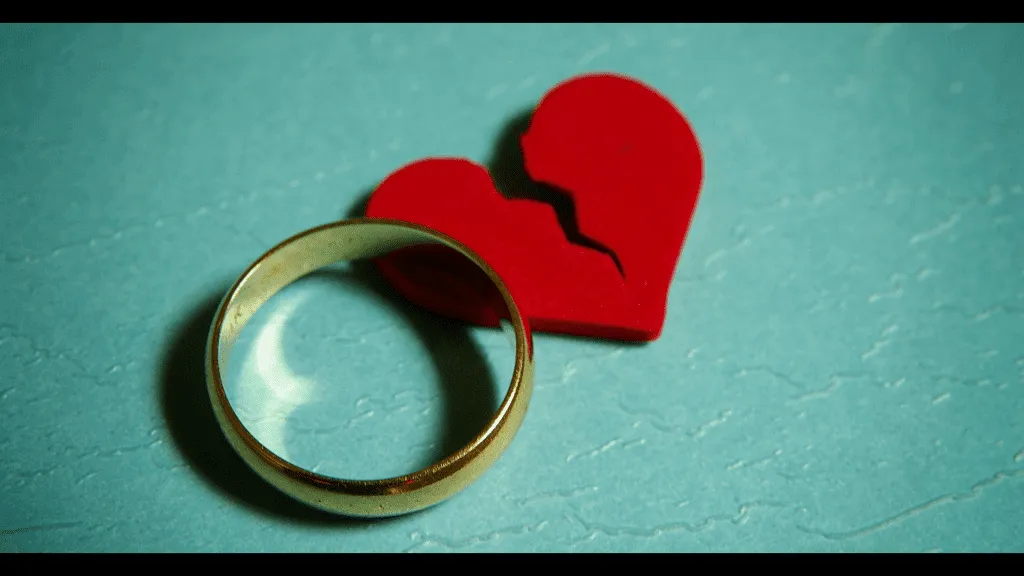
Understanding how men move through divorce emotional stages can be helpful, whether you are going through the divorce or supporting someone.
Divorce is a shocking and emotional time for all parties involved, spouses, children, and other family members. Several factors can affect how a person moves through and copes with divorce, including their role in initiating the divorce, how prepared they are, and their gender.
Men and women going through a divorce will often experience different stages of emotions as they work through the process.
Therefore, understanding how men process and move through emotions during a divorce can be useful, whether one is the man going through the divorce or someone supporting him.
However, men will often experience different emotions than women going through a divorce because society and families often condition men to portray or refrain from portraying emotions. This article will briefly explain the divorce process to highlight where emotions may become stronger before outlining the standard emotional stages men will experience. However, it is important to note that no two people are alike, and each man may experience emotion differently or uniquely from another.
Places Where Emotions May Come Up:
Divorce is the practice of legally ending a marriage and separating the lives of the spouses. Many considerations need to be made in divorce, including child custody and support if there are children, separation of property and assets that the parties own together, and care for the other spouse moving forward.
The process as a whole can often elicit solid and intense emotions. Still, there are individual steps that may cause or intensify emotions due to the subject matter and questions they may elicit.
Some stages that may cause more powerful emotions to include:
- Suggestion: The initial conversation about divorce will often involve strong emotion. If one party was not expecting the conversation or if accusations are being made. The initial shock of the conversation is likely one of the strongest emotions the partners can feel, and it is common to move through many of the stages of grief within a conversation.
- Decisions about Children: If a couple has children, strong emotions will often be tied to how often each person can see the children. Making these decisions will often make the parties feel overwhelmed and unloved if they are not given enough time with their children.
- Decisions about Money: Money can cause emotions even in the most stable relationships. But when a couple is trying to make money decisions when they are splitting up, it can cause those emotions to intensify.
- Resolution or Trial: If a couple is using a dispute resolution mechanism or going through a trial, the day of these events can often elicit intense emotion or reactions.
Many times during a divorce, a person may feel overwhelmed by emotion.
However, there is often a path that people will take through these emotions as the divorce is finalized and for some time after. For men, in particular, the following outline is a standard set of stages they may feel as they divorce.
Shock:
The first emotion that many men will feel is a shock. Shock is a temporary state of inaction and will often feel emotionless as a person begins to process a moment. This is particularly true if a person is not the initiator or did not expect the divorce to happen. However, it can also be true if the man suggests and expects it because the shock of having the conversation may be challenging to process.
This emotion usually lasts for a brief time. It may present as a lack of emotions, a blank mind, a racing mind, and the feeling of inability to function. For most, this quickly passes to denial.
Denial:
The second emotion a man will typically experience is denial.
Denial is the refusal to accept that the divorce is happening, either consciously or subconsciously. Of course, not everyone experiences denial, especially if they suggest divorce or see it coming. However, it can still affect a person who may go into denial that they started the process.
Denial will often include denying the divorce or refusing to accept that there is pain and emotion welling up inside a person. It can look like coldness or an unfeeling response to the conversation. Denial may be a short moment, but many men may carry it with them through other emotions, especially if they try to ignore them.
Pain:
Once the denial fades away, the pain will often set in.
This is usually when he starts to recognize that the divorce will happen and starts to process how life will look different. It can often include mourning for the life that the couple once shared and how they once loved each other.
Suffering and hurt will take center stage for a bit Pain can present as tears, sluggishness, or fatigue. Still, some people feel actual physical pain somewhere in their body, often in their chest. Pain may be a brief stage, but it can often overlap with other stages throughout the process.
Guilt:
Guilt is often the next stage of emotion that a man may feel. Guilt is the feeling of wrongdoing. This may be because he did something wrong that is causing the divorce, or it may be a reflection or distraction from the problem the couple is facing. This is common in men, especially when their wife initiates the divorce. They will often feel that there was something that they could have done to make the relationship last.
Guilt will often look like apologies, big gestures to try and prove they can stay in the relationship, or even admissions of things that didn’t happen in an attempt to take responsibility. Guilt may continue for some time as well, but it may quickly turn to anger.
Anger:
Once a man moves through guilt, he often finds himself in anger. Anger is an emotion that is a strong reaction to a situation. Anger can happen regardless of the underlying situation and fault in the divorce. Anger is also a normal response to the hurt and sorrow felt during the pain stage because he is trying to find an outlet for the motion.
Anger can look like lashing out at friends, family, or random strangers for little to no reason. It can often bubble up without warning. Most men going through a divorce will experience anger at some point. It may last for quite some time, or it may resolve itself quickly.
Bargaining:
Usually, during or immediately following the anger stage, a man may enter the bargaining stage. Bargaining is a stage of trying to avoid the pain and hurt by offering other solutions. Bargaining occurs when a man is desperate to avoid going through the divorce and has not processed his feelings and accepted the divorce yet.
Men will often try and make deals with their former partners, or they may attempt to make deals with their religious figures to win good favor. Bargaining will often take a little time, but it will often pass as well.
Loneliness:
After bargaining has failed and the reality of the divorce has started to sink in, a man may begin to feel intense loneliness. This is the beginning of a tough stage for everyone, especially a man who does not process emotions well.
Loneliness will often overtake a man, particularly a man that does not have an excellent external support system. Loneliness is expected as he adjusts and will often look like isolation combined with depression. Still, loneliness often comes first as the divorce winds down, leading to depression.
Depression:
Once loneliness sets in, depression is usually close behind. Depression is an intense sadness and lack of joy in the things that usually bring a person happiness. Depression will often affect a man at some point during the divorce and may last long after the divorce ends and can result from a loss of self-esteem or a shattered sense of self. Depression may look like participating in unhealthy habits, especially to an extreme.
It can also look like further isolation and sadness.
Reflection:
It is often in this period of depression that reflection begins. Reflection is when a man begins to think about the relationship and how it went wrong. Then, he can reflect on his behavior and the behavior of his former spouse to consider what was good and helpful and how they needed to work on their relationship.
Reflection can neither be an incredibly healthy time for him as he considers what he could do differently and his role in things. Still, it can also be destructive if he dwells too heavily on the relationship and the issues. But, on the other hand, good reflection can help push him toward a turn.
Turn:
At some point during the reflection period, he will start to have more good days. There will be things that start to bring him joy again, and he will begin to heal.
This stage is the turn, where he begins to move in an upward, rather than downward, direction.
Reconstruction:
After the turn, he will enter a period of reconstruction, where he begins to start to rebuild his life around himself and his children rather than the family unit that was before. This may be getting a new place, finding new friends, or settling into a routine. Finally, there starts to be excited about the future rather than dreading life without his ex. This is where he may start to move on and find himself.
Acceptance:
Acceptance is one of the last stages. It is the assurance that this is the healthiest place to be, and it looks less at what was but more at where he is now.
Acceptance can take a long time to reach, especially if he was holding onto hope of reconciliation. However, once acceptance happens, there is room for hope moving forward.
Hope:
Hope is the final stage of emotions a man may feel as he processes a divorce. Hope means that he will be looking forward to new experiences and potentially new partners in his future. However, instead of only accepting the present, he looks at the future.
Tips to Deal with Emotions:
As this discussion has evidenced, dealing with a divorce is not an easy process for men, especially if they are not used to having to work through their feelings. Having to process emotions can be difficult, but some tips may help ease the transition. These tips include:
- New Habits: It is common for men to develop destructive habits when they are dealing with divorce. Instead, mental health professionals recommend focusing on developing constructive habits to avoid falling into destructive habits.
- Therapy: Therapy is a great choice for dealing with any kind of struggle, particularly struggles like divorce. A mental health professional can help a man identify and process the emotions and stages they are feeling and offer suggestions for alternative ways to process them.
- Collaborative Processes: If possible, undergoing divorce through alternative dispute mechanisms, especially collaborative ones, may help through the divorce without experiencing the adversarial process that a trial may bring.
Handling a divorce is something that everyone hopes they never have to do. Still, if it happens, it can be helpful to be prepared and understand the emotions that may be experienced. Finding a way forward and experiencing healthy emotions can set a person up well and move them toward acceptance and hope more quickly.
Must-read Articles:
- Mediator vs Lawyer: Finding the Best Fit - April 2, 2024
- How to Deal With a Narcissist - March 27, 2024
- How Long After Mediation Will I Get My Money? - March 19, 2024


